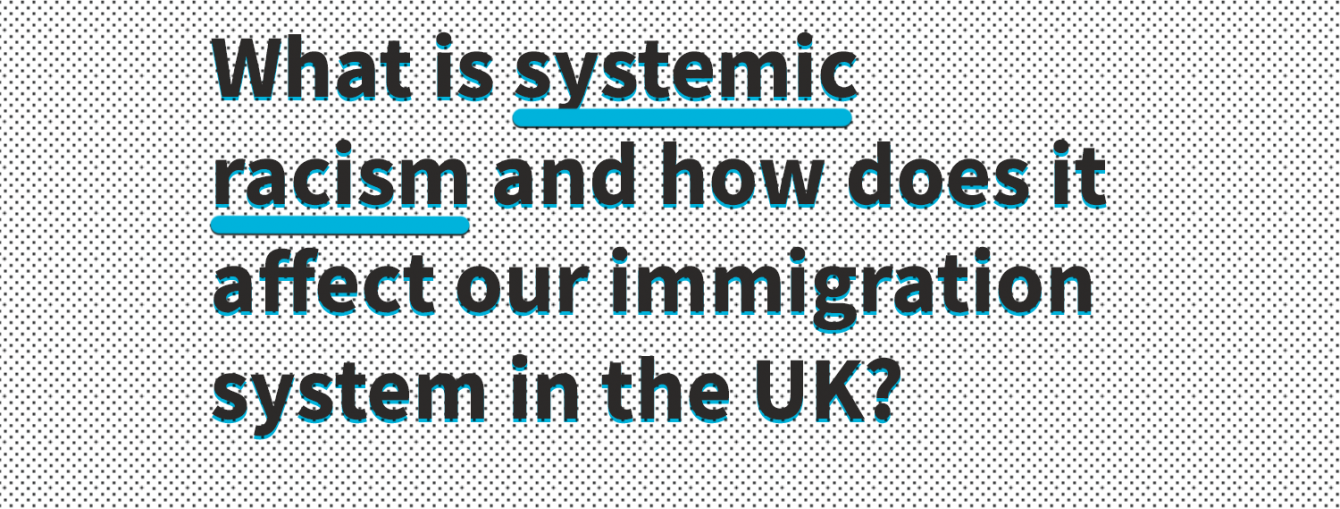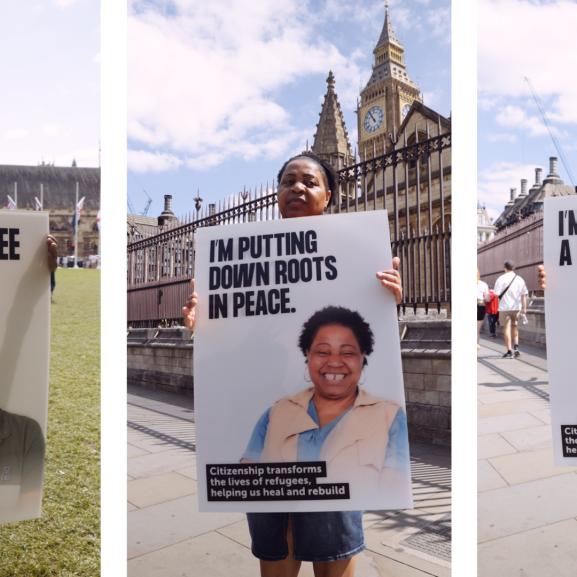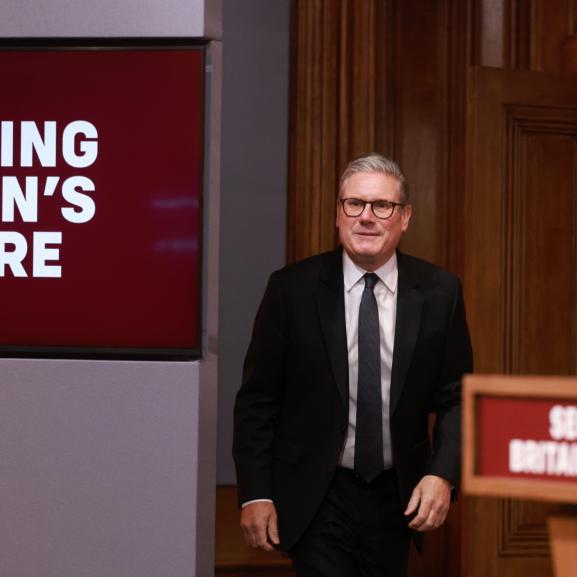What is systemic racism and how does it affect our immigration system in the UK?
The Black Lives Matter movement has sparked vital conversations about race and inequality all over the world - including here in the UK. But what is systemic racism? And how does it affect our immigration system? Find out about the Hostile Environment, the Home Office and how systemic racism can be tackled right here in the UK.
Systemic racism is a form of racism found in the practices and rules of social and political institutions which maintain racial inequality.
Also known as institutional racism, it can lead to discrimination in housing, education, justice, employment, healthcare, and more.
Leading government figures have denied that systemic racism exists in the UK.
But denying the existence of racism in the UK will prevent any real change from happening.
The Hostile Environment
A policy that was set up to discourage people from coming to the UK and to encourage immigrants without leave to remain to leave by making life in the UK impossible.
The policy enforced ID checks by the NHS, landlords, banks, etc. and instructed them to refuse their services if anyone was unable to prove residency in the UK.
The policy meant that landlords and business owners who did not comply would be faced with fines of up to £10,000.
The Windrush scandal was a product of the Hostile Environment and saw the wrongful deportation of black British nationals.
From 2013, people of the Windrush generation started to receive letters claiming that they had no right to be in the UK. Before long, some people of the Windrush generation were now being treated as ‘illegal immigrants’ and started to lose their jobs, homes, benefits and access to the NHS. Some were placed in immigration detention, deported, or being refused the right to return from abroad.
The Windrush scandal exposed an inhumane and inefficient decision-making system in need of urgent transformation.

Lessons Not Learned
Our 2019 report, Lessons Not Learned, found evidence of institutional failures in the Home Office asylum system dating back 15 years.
The report exposes the historical and systemic failures of asylum decision-making in the UK and calls on the government to deliver an overhaul of the asylum and immigration system that champions and preserves the dignity of the individual.
It found:
- There are unrealistic and unlawful demands for evidence from asylum applicants
- Home Office decision-makers having a default position that people are not telling the truth
There are 12 recommendations in the report, but for any of them to succeed, there needs to be root and branch reform of the Home Office. If we are going to tackle systemic racism, we must change the institutions which maintain it.

Wendy Williams ‘Lessons learned’ review
Wendy Williams was appointed by the government to oversee an independent review of the events leading up to the Windrush scandal.
She found the scandal was a "profound institutional failure" and that the Home Office showed "ignorance and thoughtlessness" on the issue of race.
Many of her findings pointed to the same fundamental flaws that we found in the asylum system in our Lessons Not Learned report.
This review was commissioned by the government and includes 30 recommendations.
As of 23rd June, Priti Patel has promised that all 30 recommendations from the review will be adopted. While we welcome this news, this is the first of many that need to be taken.
Beyond Belief
Our new report reveals a Home Office culture plagued by prejudice, insensitivity, and a lack of compassion.
By examining the experience of survivors of torture at the asylum interview, the report argues that the Home Office repeatedly breaches its own guidelines, and again calls for a fundamental culture change.
There are 42 recommendations in the report.
Boris Johnson has set up a new commission to investigate racial inequality in light of the Black Lives Matter protests.
Munira Mirza, director of the Downing Street policy unit, has been appointed to lead the commission. The appointment has been met with some scepticism as she is known to have said that structural racism is a myth.
But there is enough evidence already.
Priti Patel announced this week that the government will be adopting the recommendations in the Windrush review.
This welcome news is long overdue. Among those recommendations were that the government "undertake a full review and evaluation of the hostile environment".
We call for the government to act. It must urgently tackle systemic racism in our institutions, end the hostile environment and take steps to protect black people from the lethal risks of COVID-19. These are the basic human rights and justice that every human being deserves.






